| Listing 1 - 10 of 32 | << page >> |
Sort by
|
Book
ISBN: 9780231186452 9780231186445 Year: 2018 Publisher: New York : Columbia University Press,
Abstract | Keywords | Export | Availability | Bookmark
 Loading...
Loading...Choose an application
- Reference Manager
- EndNote
- RefWorks (Direct export to RefWorks)
Ernst Lubitsch's sophisticated, elegant, and stylish films of the 1930s and 1940s are often credited with creating the genre of the classic Hollywood romantic comedy. Famed for the "Lubitsch touch" and his distinct comedic style particularly when it came to romance and sex and American hypocrisy around them. Lubitsch's films influenced and won the admiration of his fellow directors, including Welles, Hitchcock, and most notably Billy Wilder. And, while he is now best known as the director of such films as Ninotchka, The Shop Around the Corner, and To Be or Not To Be, much of his work and his name is less well known. In this book, Joseph McBride, the author of best-selling biographies of Steven Spielberg and Frank Capra, reconsiders Lubitsch's place in film history and reminds us of the genius of and the many pleasures of his film. In How Did Lubitsch Do It? (the title is a play on a sign that was in Billy Wilder's office) McBride examines all of Lubitsch's films beginning with his work in Germany where he became known as "The D.W. Griffith of Europe" for his historical epics as well as being celebrated for his comedies. McBride then considers Lubitsch's work in Hollywood and how his films reflected his amused indulgence of human behavior and a celebration of un-American virtues such as the joys of adultery and serial philandering while depicting marriage in a more realistic way. McBride's discussions of Lubitsch's films answer the question asked in the book's title to explain "The Lubitsch Touch" and the endlessly inventive and fresh ways the director found of telling stories, as well as his distinctive style, his handling of character, and his ability to strike the right tone in his films.
Book
ISBN: 0231546645 9780231546645 9780231186445 0231186444 9780231186452 0231186452 Year: 2018 Publisher: New York, NY
Abstract | Keywords | Export | Availability | Bookmark
 Loading...
Loading...Choose an application
- Reference Manager
- EndNote
- RefWorks (Direct export to RefWorks)
Orson Welles called Ernst Lubitsch (1892-1947) "a giant" whose "talent and originality are stupefying." Jean Renoir said, "He invented the modern Hollywood." Celebrated for his distinct style and credited with inventing the classic genre of the Hollywood romantic comedy and helping to create the musical, Lubitsch won the admiration of his fellow directors, including Alfred Hitchcock and Billy Wilder, whose office featured a sign on the wall asking, "How would Lubitsch do it?" Despite the high esteem in which Lubitsch is held, as well as his unique status as a leading filmmaker in both Germany and the United States, today he seldom receives the critical attention accorded other major directors of his era.How Did Lubitsch Do It? restores Lubitsch to his former stature in the world of cinema. Joseph McBride analyzes Lubitsch's films in rich detail in the first in-depth critical study to consider the full scope of his work and its evolution in both his native and adopted lands. McBride explains the "Lubitsch Touch" and shows how the director challenged American attitudes toward romance and sex. Expressed obliquely, through sly innuendo, Lubitsch's risqué, sophisticated, continental humor engaged the viewer's intelligence while circumventing the strictures of censorship in such masterworks as The Marriage Circle, Trouble in Paradise, Design for Living, Ninotchka, The Shop Around the Corner, and To Be or Not to Be. McBride's analysis of these films brings to life Lubitsch's wit and inventiveness and offers revealing insights into his working methods.
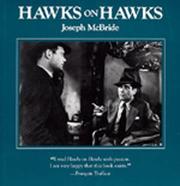
ISBN: 0520045521 9780520045521 0520043448 9780520043442 Year: 1982 Publisher: Berkeley, Calif. University of California Press
Abstract | Keywords | Export | Availability | Bookmark
 Loading...
Loading...Choose an application
- Reference Manager
- EndNote
- RefWorks (Direct export to RefWorks)
Motion picture producers and directors --- 791.471 HAWKS --- CDL --- Hawks, Howard, --- Hawks, Howard Winchester, --- Hawks, Howard --- Hawks, Howard (1896-1977) --- Entretiens
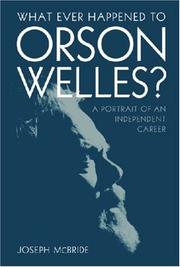
ISBN: 9780813124100 0813124107 Year: 2006 Publisher: Lexington, Ky. : University Press of Kentucky,
Abstract | Keywords | Export | Availability | Bookmark
 Loading...
Loading...Choose an application
- Reference Manager
- EndNote
- RefWorks (Direct export to RefWorks)
Book
ISBN: 9780306806742 Year: 1996 Publisher: Cambridge : Da Capo,
Abstract | Keywords | Export | Availability | Bookmark
 Loading...
Loading...Choose an application
- Reference Manager
- EndNote
- RefWorks (Direct export to RefWorks)
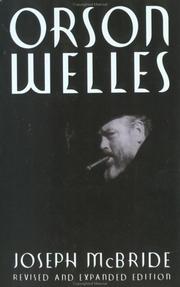
ISBN: 0306806746 Year: 1996 Publisher: New York (N.Y.) : Da Capo,
Abstract | Keywords | Export | Availability | Bookmark
 Loading...
Loading...Choose an application
- Reference Manager
- EndNote
- RefWorks (Direct export to RefWorks)
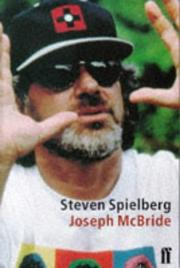
ISBN: 0571191770 Year: 1997 Publisher: London : Faber and Faber,
Abstract | Keywords | Export | Availability | Bookmark
 Loading...
Loading...Choose an application
- Reference Manager
- EndNote
- RefWorks (Direct export to RefWorks)
Motion picture producers and directors --- Biography --- Spielberg, Steven,
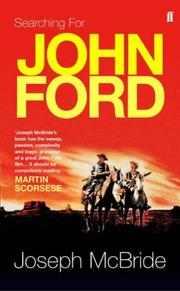
ISBN: 0571225004 9780571225002 Year: 2004 Publisher: Croydon: Faber and Faber,
Abstract | Keywords | Export | Availability | Bookmark
 Loading...
Loading...Choose an application
- Reference Manager
- EndNote
- RefWorks (Direct export to RefWorks)
Book
ISBN: 9781939795250 Year: 2013 Publisher: Berkeley, Calif. Hightower
Abstract | Keywords | Export | Availability | Bookmark
 Loading...
Loading...Choose an application
- Reference Manager
- EndNote
- RefWorks (Direct export to RefWorks)
Book
ISBN: 9780231201469 Year: 2021 Publisher: New York : Columbia University Press,
Abstract | Keywords | Export | Availability | Bookmark
 Loading...
Loading...Choose an application
- Reference Manager
- EndNote
- RefWorks (Direct export to RefWorks)
"From Some Like it Hot and The Apartment to Double Indemnity and Sunset Boulevard, Billy Wilder directed some of Hollywood's most iconic movies. However, the roots of Wilder's directorial vision and worldview were very much shaped by his Austrian background and experiences working as a journalist in Berlin at the dawn of Hitler's rise to power. Though a fixture in Hollywood, Wilder always felt an outsider and his perspective as an exiled Jew provided his films with a distinct view of the flaws and possibilities of American and European society. In Billy Wilder and the Phantoms of the Past, Joseph McBride argues, that the director was a stubborn romanticist, whose films mixed critique and compassion. Despite their satirical nature and exposure of hypocrisies of all kinds, Wilder's films were skeptical of cynicism and interested in how people overcome their disillusionment. Mixing biography with analysis of Wilder's films, including some of the later more forgotten works, Joseph McBride explains how Billy Wilder became Billy Wilder"--
Motion picture producers and directors --- Austrians --- Jews --- Motion pictures --- History --- Wilder, Billy,
| Listing 1 - 10 of 32 | << page >> |
Sort by
|

 Search
Search Feedback
Feedback About UniCat
About UniCat  Help
Help News
News